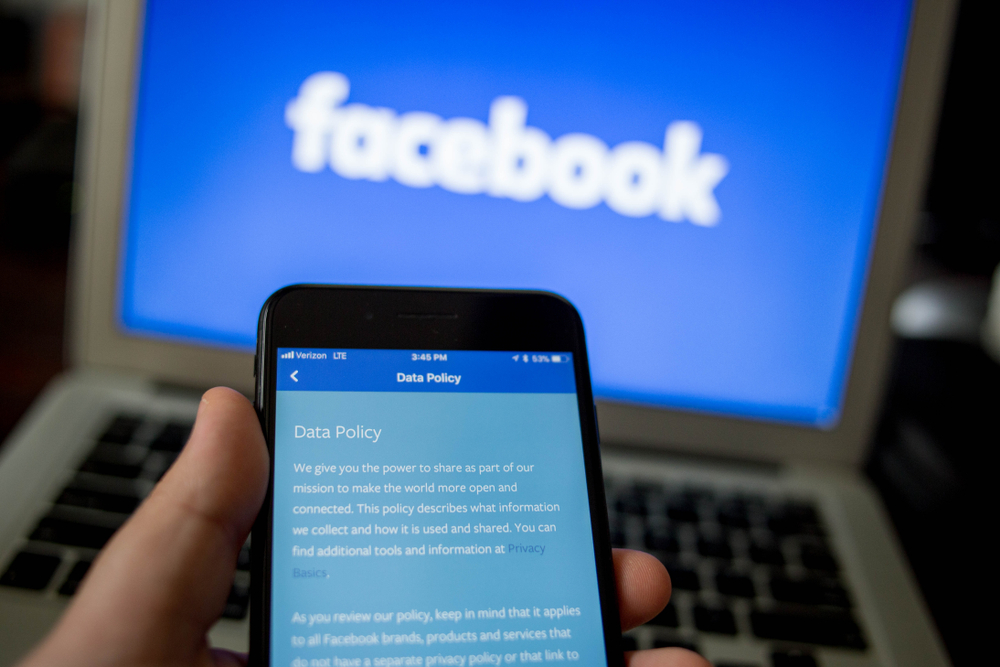The question of whether fathers deserve as much parental leave as mothers when a new child comes into the home is in the hands of a Washington, D.C. district judge.
The pandemic has pushed the issue to the surface again, said Edgar Ndjatou, executive director of Workplace Fairness, a nonprofit that promotes fair business practices and works to see that employees are treated equitably.

“I think COVID-19 has brought a lot of things to the forefront, including the misconception that fathers don’t need extra time with their newborn children,” he said.
A young married couple, both lawyers, sued the law firm of Jones Day, one of the largest legal firms in the world. They allege unfair parental leave policies that discriminate against fathers. Both were associates for the firm.
RELATED: Uber, Lyft drivers earn win in battle for unemployment benefits
RELATED: Rules tighten on protected speech in workplace
Judge Randolph Moss of the District of Columbia said Sept. 4 that he cannot resolve the question without a trial moving forward.
Moss said he cannot make a determination without seeing evidence and that means going forward with a trial, Moss said, according to the American Bar Association Journal.
He said Jones Day suggested its leave policy was all about a woman’s disability. But the firm did not explain how it would determine if she gets four weeks off or eight weeks off.
“Even accepting that premise, four weeks is very different than eight weeks, and substantial ground for difference of opinion may exist about whether many (or most) of the associates who benefit from Jones Day’s maternal disability policy are, in fact, disabled for the entire eight-week period,” he said.
The couple who brought the suit, Mark Savignac and Julia Sheketoff, who are former law clerks for U.S. Supreme Court Justice Stephen G. Breyer, sued Jones Day in August 2019.
Both complained about policy
Both say they complained to their former firm about the unequal parental leave policy in an email in January 2019, just after Sheketoff left the firm to become an appellate public defender. Three days after that complaint, Savignac was fired, they say, and male partners were banned from giving him good references.
The suit alleges violations of Title VII of the Civil Rights Act; the Equal Pay Act; the Family and Medical Leave Act; and Washington, D.C., laws governing sex discrimination and family leave. Jones Day partner Traci Lovitt told Moss during a hearing in August that reviewing the firm’s short-term disability policy should end the former associates’ claims.
“It’s not sex-based,” Lovitt said, according to an American Lawyer article. “The disability correlates with pregnancy. Just because you’re a woman, you don’t get short-term disability leave. You get disability leave because you had a child.”
Savignac disagreed, saying that yes, the Pregnancy Discrimination Act requires that new mothers be given leave on the same terms as women who have other disabilities, but that it does not guarantee a fixed amount of leave. He contends the leave should be customized for each woman.
“You can’t just treat women as members of a group sharing statistical similarities,” he said in court filings.
Questions of fairness
There are questions over the fairness of how maternity leave or parental leave is offered.
“I think it is about time employers revisit their policies and catch up with the times,” Ndjatou said. “Anecdotally, I would say 100 percent of my friends co-parent. That is a sign of the times” and should be considered by all employers.
“Unlike many other countries, paid leave to take care of a newborn is not guaranteed under the law in the United States,” according to the parental blog Insperity. “In fact, the U.S. is the only country among 41 nations that are members of the Organization for Economic Cooperation and Development (OECD) and the European Union that does not mandate any paid leave for new parents, according to data compiled by the OECD.”
Without mandated paid parental leave, employees often must cobble together a combination of disability leave and banked paid time off. Insperity calls that “a patchwork solution that often falls short.”
The issue has been addressed in recent years as more women have entered the workforce. Companies in competitive fields tend to offer more generous maternity leave — six weeks to six months — to entice top talent.
But not every company has success.
“Consider the cosmetics giant Estee Lauder, which in 2018 settled an Equal Employment Opportunity Commission (EEOC) lawsuit for $1.1 million for providing more benefits to new moms than dads,’’ the Insperity article states. “The company gave new mothers six weeks of paid parental leave for child bonding, in addition to leave for recovery from childbirth and flexible return-to-work benefits. In comparison, new fathers received only two weeks of paid bonding leave.
“In making their case against Estee Lauder, the EEOC found that Estee Lauder violated Title VII of the Civil Rights Act of 1964 and the Equal Pay Act of 1963, which prohibit discrimination in pay or benefits based on sex. It was a costly mistake. The landmark case has become an important lesson for businesses of all sizes crafting their own parental leave policies. Good intentions are great, but double check the details to make sure your plan is fair to everyone.”
No requirement to treat pregnancy differently
Employers are not required to treat pregnancy more favorably than other temporary disabilities, according to Workplace Fairness.
“If an employer does not provide leave for temporary disabilities and temporarily disabled employees must take leave without pay, be docked for absences, and/or face termination after a certain number of absences, then pregnant employees may risk the same consequences for pregnancy-related absences,” it states on its website.
“The law also doesn't prohibit employment decisions based on an employee's conduct that may be caused by pregnancy. For example, an employer doesn't have to treat an employee who was late due to morning sickness any better than an employee who was equally late for a different health reason. However, employers of 50 or more employees may be required to comply with the Family Medical Leave Act and allow employees to take unpaid leave for pregnancy, childbirth, and child-rearing following the birth of a child.”
“Some employers are getting it, but there are still some people working for big companies and fathers get time, but not as much time as mothers. That is what this Jones Day lawsuit represents,” Ndjatou said. “People are starting to realize it is unfair and this Jones Day case is part of that reckoning.”
When a woman goes through pregnancy and childbirth, obviously, it is very taxing on her, physically, he said.
“One could make the argument, but if a dad adopts a child, shouldn’t he have the same time as his wife? Why should he get less? Socially, it is becoming more accepted that parents co-parent, not one being the primary caretaker and one is not. It is a truly shared burden.”














